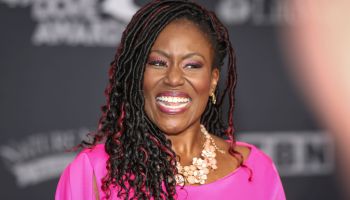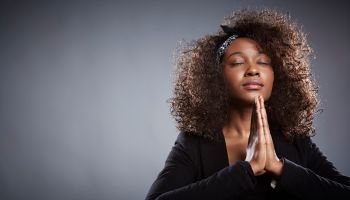The divide between the religious and nonreligious is a wide one – even more so in America, where Christianity and politics are so often intertwined. Atheist Gina Welch wanted to bridge that gap. So she went undercover for two years, joining a megachurch and revealing her nonbeliever status to no one. She eventually became a true part of the community, even going on a mission trip with people she now considers friends.
Welch details her journey in a new book, In the Land of Believers: An Outsider’s Extraordinary Journey into the Heart of the Evangelical Church. She talked with TIME about pastor Jerry Falwell and why even atheists can respect Christian evangelism. (See 10 surprising facts about the world’s oldest Bible.)
Were you surprised at how you came to be part of the evangelical world?
It’s very easy to roll your eyes at the whole culture if you don’t have any stake in anyone participating in it. Once I developed friendships with people whom I cared about, it was easier for me to see the appeal. It’s no accident that evangelical Christianity is as popular as it is. I even came to enjoy listening to sermons from Jerry Falwell, whose politics I was [initially] allergic to. The emotional, intoxicating experience of being at church and hearing that music, and the whole structure of a Sunday service, was moving to me. And I don’t believe in God.
Did you have any misconceptions that got reversed?
Evangelism seemed invasive to me. I thought of it as an imperialistic arrogance – that they wanted to overpower people. My experience with evangelism was something very different. They felt that they could do something about the eternal suffering of others. I came to see evangelism instead as a kind of empathy. That made me feel like there was something in it I could respect. (See the top 10 Jesus films of all time.)
How do you feel evangelicals are portrayed in the media?
The media often portrays evangelicals as brainwashed, simpleminded and angry. My book isn’t the story of falling in love with everybody. There were some people who seemed to sit perfectly into the picture that I’d always had of evangelical Christians. For me what was missing from the media portrait was complexity. (Comment on this story.)
At what point did you no longer feel like an outsider?
Jerry Falwell’s death. I felt unexpectedly saddened. In my [nonreligious] world people were celebrating, people were exuberant. I felt that he wasn’t being fairly represented. I’d grown this affinity for him simply by being intoxicated by his charisma. That sadness was unacceptable to show to people from my world because it seemed like it might suggest that I was supporting Jerry Falwell. (See the top 10 religion stories of 2009.)
You talk a lot about evangelicals’ mission to save souls. Did you ever get the sense that being a Christian was about more than just a pass into heaven?
I think that there are some people who are just motivated by the glory awaiting them in the next life, but the experience that I had of most people was that they were very concerned with being good in this life. They wanted to do as Jesus would do in this life.
Did you feel like they really did as Jesus would do? Were they really living what they said?
In many ways, yes. The selflessness that I saw there, the willingness to sacrifice, was very impressive to me. But I think there’s [also] a lot of bigotry there that did not strike me as being synonymous with Jesus’ attitude. I think their attitude toward the gay community – love the sinner, hate the sin – is very disingenuous because what it’s like in practice is that they are both repulsed and amused by gay people. To me it’s less important that they come up with a more palatable way of expressing their homophobia than that they get over their homophobia. Their prejudice needs confrontation.
Do you regret going undercover and pretending to be a Christian?
I regret it in that I think it hurt people I care about. I regret the blitheness with which I participated in religious rituals I just couldn’t bring myself to take seriously. But I think that the ability for my book to bridge a gap between evangelical Christians and nonbelievers does mitigate to some extent what I did.
Do you hope nonbelievers will use this book to explore their own beliefs more?
I hope that it inspires people to be more conscious about what they believe. I had never stopped to think why don’t I believe in God, or about a lot of my political points of view. Why am I pro-choice? Being around people who disagreed with me on almost everything, I had to re-examine every part of what I believed to make sure I believed it for a reason.
View this article on Time.com
post via here











